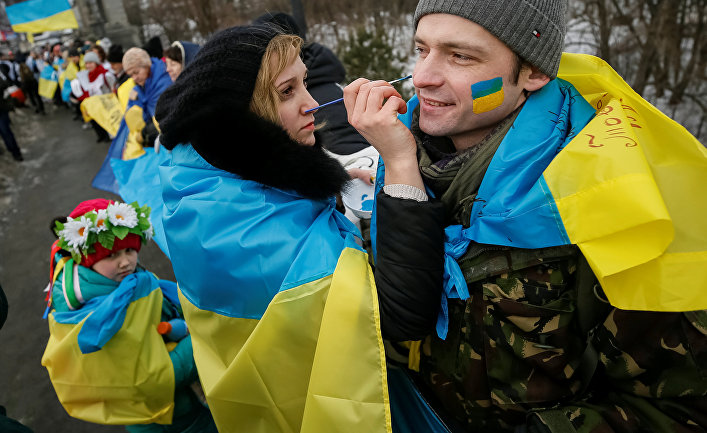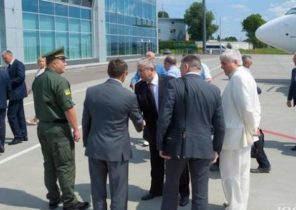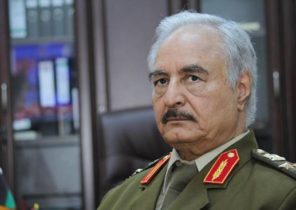
In Europe, apparently, again there is some “fatigue” from Ukraine. This syndrome first appeared in the mid 2000-ies, when the reform process in Ukraine is stuck after the orange revolution of 2004. Even then it seemed that political maturity can be seen in the population, but not leadership, which missed a chance for reforms in the political, economic and social system of the country (particularly due to the influence of the oligarchs). Europeans welcomed the national initiative, but with obvious fatigue followed the actions of the Kiev elite.
A new chance for Ukraine occurred in the fall of 2013 with the movement “Euromaidan”, but the demonstrations gave way to conflict in the Donbass with a strong intervention of Russia. All this confirms (if someone still had doubts) that Ukraine plays an important role for the balance in Europe, which has responsibility in her immediate environment, in particular for the stability boundaries. In this regard, it is necessary to consider the expectations that still rely on the ability to change — both internal and external — Ukrainian institutions and companies. Hopes for rapid change is partially justified, but the main thing is to fit them into a long process. In both 2004 and in 2016 Europeans embraced the fatigue at the sight of the slowness of Ukrainian reforms.
Whatever it was, they should not be too quick to discard the Ukrainian question. To lead the country from a controlled economy and post-Soviet system into a liberal democracy and market economy takes time, especially against the background of military crisis.
Ukrainian imbalance
The European Union, in turn, is in much worse shape than ten years ago: it is not about the new extension to the East and the Balkans, and Breccia which excites the minds in 2016 after you have left a deep mark the history of Greece. Tensions between the EU and Russia has reached its climax after the collapse of the Soviet Union, and in Hungary and Poland raises his head authoritarianism. The fatigue from Ukraine, there is another, more serious reason: Europe is sleepy. But now, completely the wrong time. Europe must stay alert and attentive, especially in relation to their surroundings.
The attacks in Paris on November 13, 2015 and the refugee situation led to the fact that the Syrian crisis is finally pushed into the background the interest in Ukraine. However, throw Ukraine to close her eyes out of cowardice or for your own peace of mind, it would be a big mistake. The fact that the decision to part available in Europe points of imbalance are to be found in Ukraine. Thus, to devote themselves to this important than ever.
In military terms, the stabilization of the Ukrainian front will contribute to ease tensions on the continent. Although the second Minsk agreement has reduced tensions, the fighting in fact did not completely stopped. However, since February 2015, have made tangible progress, and the parties to the conflict acknowledged that resolving the crisis would be more of a political rather than military in nature.
Now it is necessary with special attention to monitor the implementation of these agreements, which is a pre-condition for lifting existing sanctions against Russia. Their unconditional withdrawal would only undermine the credibility of European foreign policy, which incurs considerable criticism. Given the current tensions in Ukraine, the difficult relations with Russia, and gaps in the agreement, every one can easily understand that the Donbas will remain a hot spot in Europe, which will not work to close my eyes. The gradual elimination of the imbalance in Ukraine is necessary to preserve equilibrium in Europe.
Without lever extensions
Further, in economic terms, Ukraine has moved closer to European markets through in-depth and complete free trade agreement, which entered into force on 1 January 2016. The real challenge lies in the transformation of the Ukrainian economy and increasing its competitiveness with the respect of European rules. The fight against corruption remains a huge problem due to the concentration of wealth in the hands of a few people who were able to reshape the system to their advantage.
Until now, European integration has served to guide these reforms. Will have to come up with a new driving force for reform without lever extension that will be unavailable for at least several years. The questions of transformation of the energy sector and the transmission system also have to solve throughout the continent. Ukraine is the EU’s rapprochement with the Eurasian Union would give positive results.
In terms of governance of Ukrainians are waiting for large-scale projects, such as decentralization and EU member States have all the necessary skills to accompany Kiev in these profound changes. Finally, in political terms, and with the two previous factors, the normalization of relations between the EU and Russia implies the improvement of the destiny of Ukraine, not trying to forget about her. The question is not whether to leave Ukraine for Moscow, or fight Russia for the sake of Kiev, and to reconcile the different interests and resolve conflicts. Without Kiev should not expect improvement in relations between Europe and Russia. And without normalization of Russian-European relations from neighbouring States will not be conditions for the development in optimal conditions.
“The right to effective leadership” there are no boundaries. This is a major issue for the entire European continent, in particular for participating in the Minsk agreement of the French, which must invest energy in the relationship. The development of the situation in Ukraine will say a lot about the ability of Europe to build their own future in the spirit of the founding ideal (peace) and to develop a broader and more balanced relationship with the geographical, historical, cultural and political environment. Europeans, Wake up! What is happening in Ukraine is part of our common destiny, the ability to Express themselves in the state affiliate and push it forward, offering prospects immediate entry.







